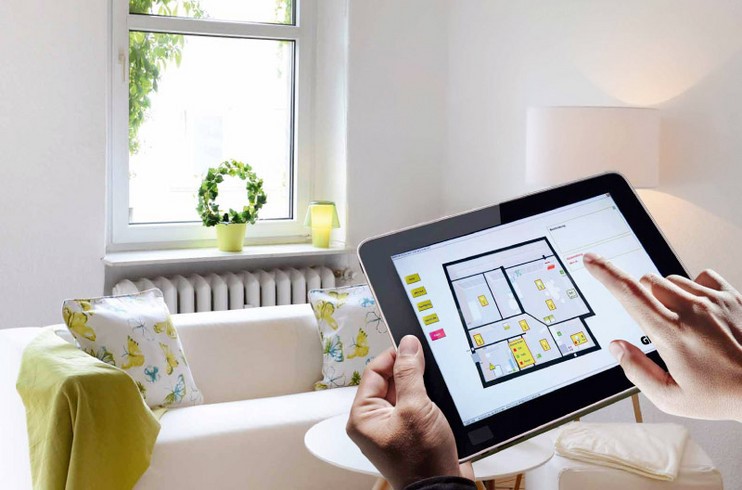The fifth generation of mobile or 5G represents more than just a new generation of technology. It’s a merging fabric that’s supposed to link billions of devices in the most efficient, fast and reliable ways possible. If you want to learn more about the new 5G technology or perhaps write a dissertation about it, visit our dissertation service.
5G will reshape industries and transform the world we live in. The world we currently live in requires fast connectivity for laptops, smartphones, and tablets. It also requires a large number of simple, low-cost, efficient and smart devices that will manage to stay connected under the most challenging conditions. You’ve probably heard a lot about IoT (internet of things) recently and you assume that 5G will take it to the next level.
What’s the purpose of the 5G technology?
The number of devices connected to a universal mobile network reaches up to 50 billion. Smartphone developers assume that in approximately 5 years, this number will increase by 10 times. 4G cannot satisfy the needs of the modern generation data connection.
As you know, the mission of 4G is to connect people. But the mission of 5G is to link devices and meet people’s growing needs for stronger data communication capacities.
The 5G new technology has latency undetectable to our eyes and ears. It’s even 20 times faster in comparison to today’s top speeds. In simpler words, 5G stands for a fast transference of immense amounts of data from any type of device that exists.
What’s the usage spectrum of 5G technology?
The new 5G technology will find a place to operate in many different areas, including:
- Monitoring and controlling infrastructure
Target users include police, energy industry, healthcare, infrastructure, security service providers, water supply companies and agriculture. Possibilities include public safety, mission-critical utility services, and HD security videos. Benefits include safer cities, safe buildings, managing a large number of data connections, and linking a billion devices. It will prevent malfunctions because it will enable decision making in real time.
- There will be sensors everywhere
Target users include agriculture companies, public sector organizations, water supply companies, smart houses, security companies, energy companies, and other companies. Possibilities include smart buildings and cities, better agriculture and environment, better utility services and benefits for consumers. Benefits include fresh business opportunities created by large data and cost-efficiency established on updated info.
- Broadband and media everywhere
Target groups include the entertainment industry, online stores and services, and regular people. Possibilities include freelance work, freelance learning, online shopping worldwide, and experiencing and sensing the wider world. Benefits include downloading HD movies in just seconds, reading your favorite book in a self-driving vehicle, VR trips, remote work, and learning, location won’t matter anymore, and hologram concerts.
- Remote control of different devices
Target users include healthcare, mining, the oil industry, robotics. Possibilities include remote control of industrial equipment, controlling processes in real time, factory automation, and remote healthcare. Benefits include reduced risk to people’s health and safety thanks to the remote control of industrial equipment and operating machinery in dangerous areas, lower costs, better efficiency, and being able to perform remote surgery. Just imagine a doctor based in London performing a surgery in New York.
- Face-to-machine communication
Target users include universities, healthcare, public sector, fitness, R&D companies, and fitness. Possibilities include gaming in virtual reality, supervision, support services for children and elderly, smart bike helmets, smart houses, smart package delivery. Benefits include internet connection without latency, communication between machines and people, and new business models based on sensors in order to prevent danger.
- The future of commuting
Target users include insurance companies, security, car industry, transportation companies, schools, cities, infrastructure companies, road users and governments.
The possibilities that come with 5G are endless. Self-driving cars, connected bus stops, and automobiles. Benefits include intelligent traffic systems and new business models and services that will communicate with sensors and enable safe and smooth traffic.
How will 5G technology impact our lives exactly?
As you can notice, the new 5G technology will most likely transform the world we live in today into something better. It will enable connectivity between billions of devices, public services provide a more accessible and faster quality service, machines talking to machines won’t be a science fiction anymore, same as machines talking to people. Just imagine talking to your refrigerator what food you want to have constantly, and it will ensure that you have a good supply of your favorite edibles. Imagine smart cities and smart buildings with 100% safe transport and no traffic. Imagine smart traffic where cars are able to communicate and adjust speed to ensure your secure arrival.
Smart healthcare isn’t an exception once 5G comes into force. Surgeons will perform surgeries on patients worldwide while being located in their hometown. How insane is that? 3D Holograms will provide concerts in the comfort of your home. Meaning, the possibilities, and benefits for humanity and the entire planet with the usage of the 5G technology are endless. 5G will probably be first applied in places where it might bring key improvements in a direct or indirect way. 5G will probably be put into use by 2020.
The impact of 5G will be revolutionary. If you want to write an essay about it or need help with some other essay, contact our expert essay writing service to assist you.


